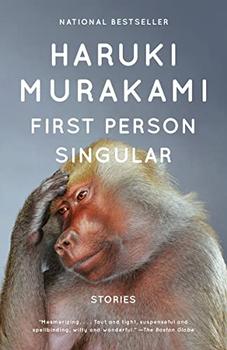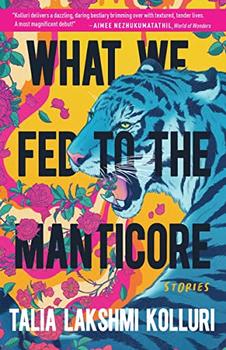Summary | Excerpt | Reviews | Beyond the book | Read-Alikes | Genres & Themes | Author Bio

Readers familiar with Haruki Murakami will know that music is often a central theme in his work. The author once owned a jazz club, and his website even offers a collection of playlists featuring songs mentioned in his books. This theme is on full display in First Person Singular, as is Murakami's penchant for hints of surrealism. In the humorous and bizarre "Charlie Parker Plays Bossa Nova," for instance, the narrator recalls writing a review for his college newspaper of an album by the titular jazz musician that he had invented whole cloth as a joke. Years later he somehow finds this album in a record store, with the exact tracklist he fabricated. He returns the following day to buy it, and of course it's no longer there and the clerk has never heard of it. Was it a hallucination? Did he somehow summon the record into being? It's a classic, clever Murakami mindbender.
Each story features a narrator reflecting on a memory from the past in a state of ambiguous longing — not with a desire to recapture something they once had, but with a vague awareness that they missed something critical at the time the events occurred. They are detectives looking for clues in the ephemera of their pasts from a present that is generally undefined. We're told very little about who these narrators are, what their lives are like, whether they're happy or unhappy. They're not haunted by their memories, exactly, more like perplexed, as though there's a mystery to be solved. What did this incident mean? Why does it continue to resonate so strongly many years later? Why did this person say or do this strange thing that sticks so firmly in the mind?
In "On a Stone Pillow" Murakami considers the perplexing, often self-defeating behavior we engage in for love. The narrator has a brief affair with a woman who warns him she will probably say another man's name in bed. She's in love with this other man, but her feelings are unrequited. "He told me that my face is plain but my body is the best," she says of her other lover. Still, she goes to him every time he calls her for sex. She tells the narrator, "Loving someone is like having a mental illness that's not covered by health insurance." The woman also mentions that she writes poetry, and she later sends the narrator a collection of her work that he finds fascinating. The story is made more interesting, and the female character slightly more complex and dynamic, with the addition of this detail; but she remains one-dimensional, a figure akin to the manic pixie dream girl trope — existing only to guide the central male character toward a greater understanding of himself. One might even wonder if this entire story was written as a vehicle for the one-liner about love being a mental illness.
The story "Carnaval" features a similar problem. Focused on the narrator's friendship with a woman who shared his affinity for the work of composer Robert Schumann, it begins "Of all the women I've known until now, she was the ugliest," and continues to harp on this point for pages. It ends with the narrator learning that his friend has been arrested for fraud, but the discovery that she has a young, handsome husband is more shocking to him than her illegal transgressions. In this case, readers might imagine that the story of this woman's life, told from her own perspective, might be more interesting than the one narrated by the man who is fixated on her appearance.
Nevertheless, there's an electric potency to Murakami's writing. The plots are tightly constructed in neat arcs, the themes are elegantly realized, the narrators' feelings of longing resonate. There's a story featuring a talking monkey that is humorous and more emotionally complex than one might imagine such a story could be. Another standout, "With the Beatles," is a moving, ruminative exploration of nostalgia and the random devastation wrought by mental illness. Murakami's fans won't be disappointed and readers seeking an accessible entry point into his work will find it here.
![]() This review
first ran in the April 7, 2021
issue of BookBrowse Recommends.
This review
first ran in the April 7, 2021
issue of BookBrowse Recommends.

If you liked First Person Singular, try these:

by Ananda Lima
Published 2025
Strange, intimate, haunted, and hungry―Craft: Stories I Wrote for the Devil is an intoxicating and surreal fiction debut by award-winning author Ananda Lima.

by Talia Lakshmi Kolluri
Published 2022
In nine stories that span the globe, What We Fed to the Manticore takes readers inside the minds of a full cast of animal narrators to understand the triumphs, heartbreaks, and complexities of the creatures that share our world.
Your guide toexceptional books
BookBrowse seeks out and recommends the best in contemporary fiction and nonfiction—books that not only engage and entertain but also deepen our understanding of ourselves and the world around us.